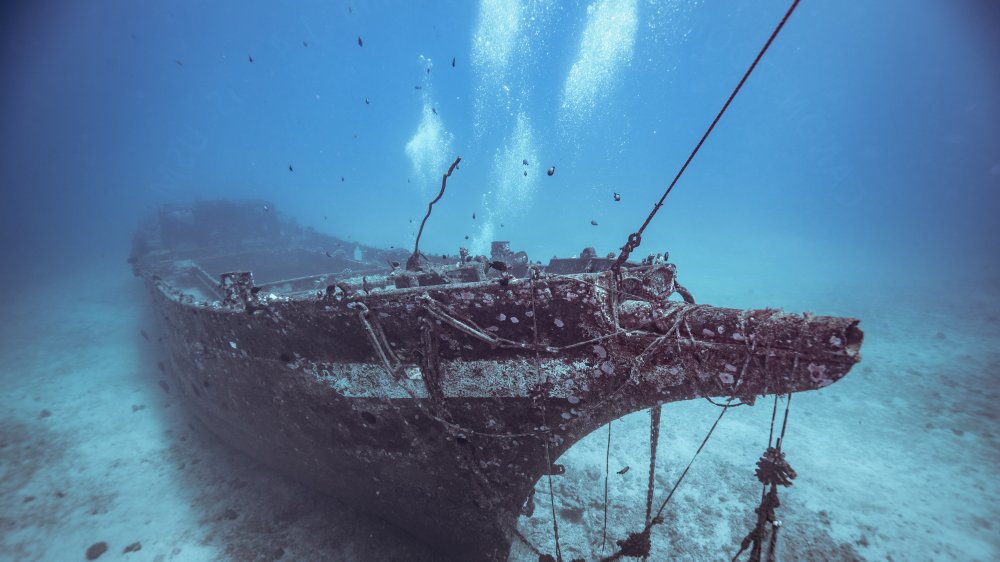The Untold Truth Of Davy Jones' Locker
"Davy Jones' Locker," from a contemporary point of view, is really only used in a couple of contexts. Generally speaking, it's uttered when an over-the-top pirate themed seaside restaurant needs a name for their seafood platter, or when a drunk guy in his 30s tries to show off his Jack Sparrow impression on a Tinder date, to polite but disinterested reviews.
You're probably aware that the term dates back to that period of several centuries when sailing was still the best way to get from one point to another and not just an expression of caucasion midlife angst. It was a salty way of saying "the bottom of the ocean," particularly in reference to a drowning in a shipwreck. But where did it originate? Who was Davy Jones? And why did he keep a locker if his work kept him out at sea so often? Wouldn't a storage unit be a more realistic option? Skim a few websites for historical societies and you'll notice that the answers are varied, evocative, and bizarre.
Down to the briny depths
One of the first mentions of Davy Jones' Locker, according to The Vintage News, came from The Four Years Voyages of Capt. George Roberts, a 1726 novel by Daniel Defoe. These days, Defoe is sort of a literary one hit wonder, best known for Robinson Crusoe. At the time, however, he was busy forcing his editors to pour themselves a double and give up, based on his introduction to Davy Jones' Locker. "They would look out some things, and give me along with me when I was going away; but Ruffel told them, they should not, for he would toss them all into Davy Jones's Locker if they did," he wrote, appropriately drowning the English language in the process.
A scant few decades later, Tobias Smollett had his own take on the saying. In 1751's The Adventures of Peregrine Pickle, he relayed that "Davy Jones, according to sailors, is the fiend that presides over all the evil spirits of the deep, and is often seen in various shapes, perching among the rigging on the eve of hurricanes, shipwrecks, and other disasters to which sea-faring life is exposed, warning the devoted wretch of death and woe."
Deeper and deeper
By the 20th century, the origins of the phrase were apparently obscured beyond the capacity for retrieval, in all likelihood by the same game of seafaring cultural telephone that led sailors to manatee-infested waters in the hopes of meeting pretty mermaids. But that hasn't stopped people from speculating.
There are theories that tie Davy Jones to religious figures. History Net posits that he may have been Saint David, a sixth century bishop sometimes remembered as a seafarer. They also point out that "Jones" may have been a bastardization of "Jonah," the Old Testament character who spent a greater-than-usual amount of time in a whale. That same theory was pushed in 1898's Dictionary of Phrase and Fable: "Locker, in seaman's phrase, means any receptacle for private stores; and duffy is a ghost or spirit among the West Indian negroes. So the whole phrase is, 'He is gone to the place of safe keeping, where duffy Jonah was sent to.'" Comforting.


